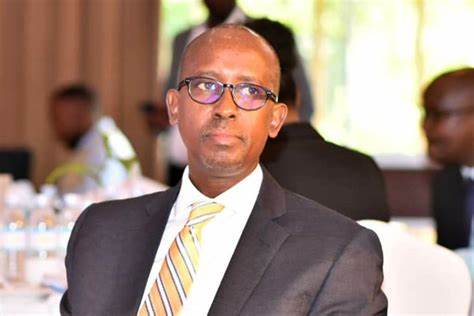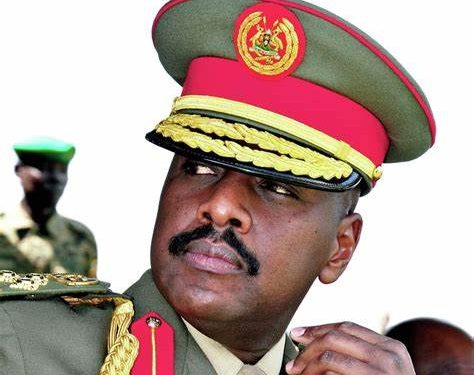Uganda’s political circus has hit a new low as President Yoweri Museveni’s own puppets, Odrek Rwabwogo and Gen Muhoozi Kainerugaba, squabble like scavengers over the carcass of power. This isn’t about national progress or visionary leadership; it’s a sordid display of nepotism, corruption, and self-indulgent ambition. The recent mudslinging between Museveni’s kin, Muhoozi and Rwabwogo, exposes a grotesque, rotting family drama that treats Uganda like a playground for their personal gain.
Hajji Sadam Gayira, president of the People’s Progressive Party (PPP), has laid bare the appalling reality of this power struggle. His blunt assessment serves as a mirror reflecting the decay within Uganda’s political system. Muhoozi’s venomous social media outburst, where he condemned his father’s photo-op with Rwabwogo as a meeting with a “big thief,” is a glaring testament to the festering corruption and deep-seated rivalry within the first family. The tweet, quickly deleted, only underscores the cracks in the carefully constructed illusion of loyalty within Museveni’s family. Meanwhile, Rwabwogo, desperate to salvage his tainted reputation, dismisses these accusations as part of a “sponsored character assassination campaign,” a pathetic attempt to deflect criticism and maintain his dwindling influence.
The unvarnished truth is that Muhoozi and Rwabwogo are both beneficiaries of Museveni’s corrupt regime, their opulent lifestyles built on the spoils of a rotting government. Muhoozi, cushioned in his role as Chief of Defense Forces, basks in the protection of his father’s military clout, fully aware that his father’s shadow overshadows the army. Rwabwogo, on the other hand, is a symbol of crony capitalism, reaping the rewards of his marriage into the first family while amassing a fortune that reeks of corruption. The Ugandan public is not blind to these facts; they see Rwabwogo as a prime example of how privilege, not merit, dictates one’s rise to power. Although Muhoozi is not visibly involved in business, his military rank and political forays indicate a clear grooming process by Museveni for greater things.

Gayira’s observations hit the mark when he says Ugandans see Muhoozi as a more plausible successor, not because he’s deserving of leadership but because he’s a household name, groomed by Museveni’s propaganda machine. In stark contrast, Rwabwogo appears as an out-of-touch elite, mingling with the wealthy while the nation drowns in poverty. It’s no wonder Gayira compares Rwabwogo to John Patrick Amama Mbabazi, whose failure to connect with the grassroots ensured his inability to mount a serious challenge to Museveni.
This ongoing power struggle is nothing new; it’s a nauseating display of Museveni’s long-standing tactics to keep potential challengers under his thumb. From the sidelining of Mbabazi to the humiliation of Gilbert Bukenya, Museveni has orchestrated a Machiavellian scheme to pit his potential successors against each other while he tightens his grip on power. This is not just political maneuvering; it’s a calculated strategy to perpetuate his regime through a carefully managed succession plan that maintains the family’s control.
As this disgusting spectacle continues, it’s clear that the first family’s internecine conflict has nothing to do with Uganda’s future or the welfare of its citizens. Instead, it’s a naked power grab, a grotesque display of family members vying for dominance while ignoring the pressing issues of corruption, poverty, and lack of democratic freedoms. The people of Uganda are being sacrificed on the altar of Museveni’s power-hungry dynasty, left to watch as Rwabwogo and Muhoozi engage in a pathetic contest for dominance.
In the end, both Rwabwogo and Muhoozi are mere cogs in Museveni’s corrupt machine, each one vying for a position in the rotten hierarchy that perpetuates their father’s despotic rule. This is the tragedy of Uganda: a nation held hostage by the self-serving ambitions of a few, while the suffering masses are left to endure the fallout of a regime that has long outlived its usefulness. Uganda desperately needs a revolution to break free from this cycle of corruption and despair, not another round of the same old, decrepit power games.







Discussion about this post